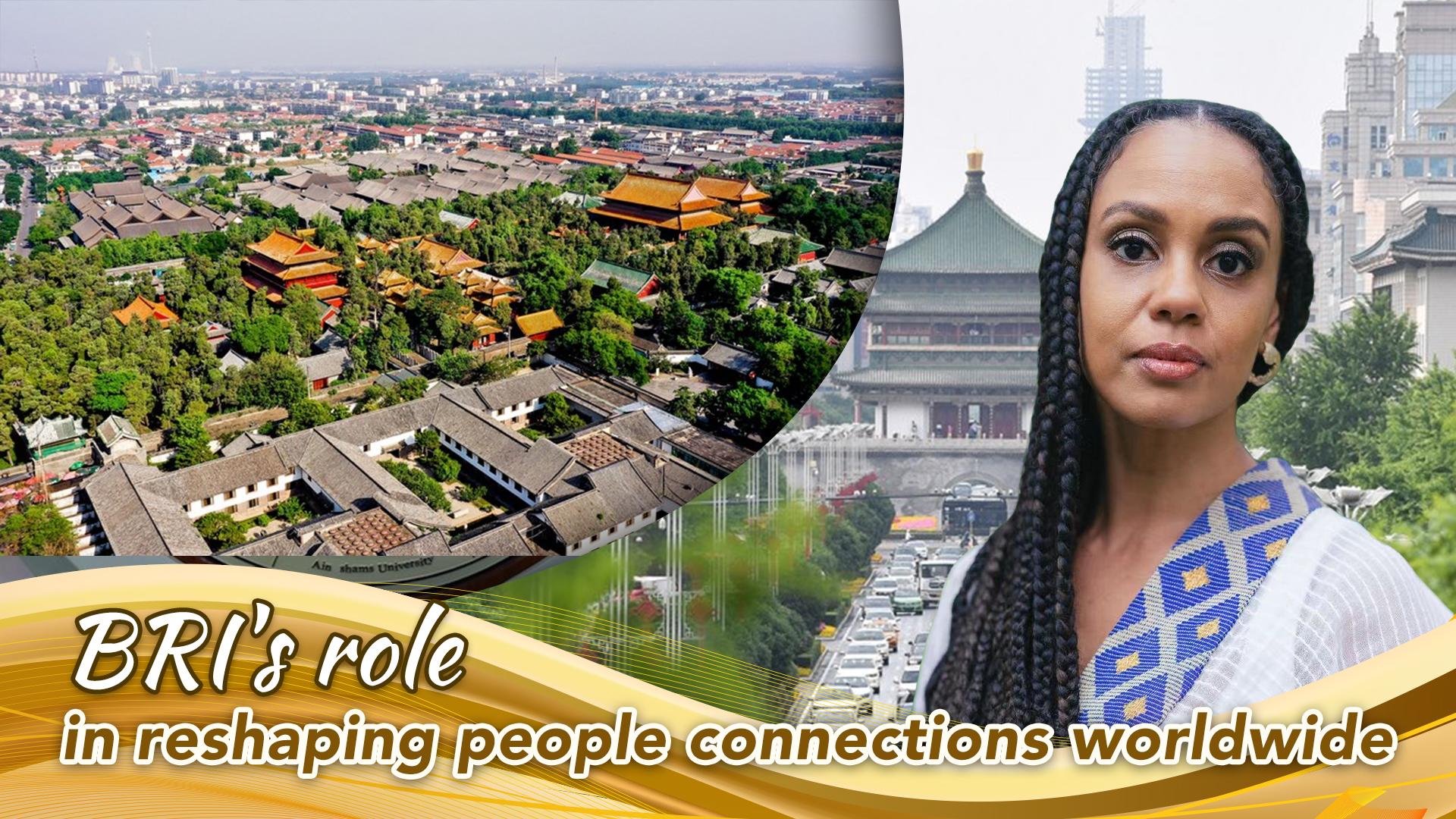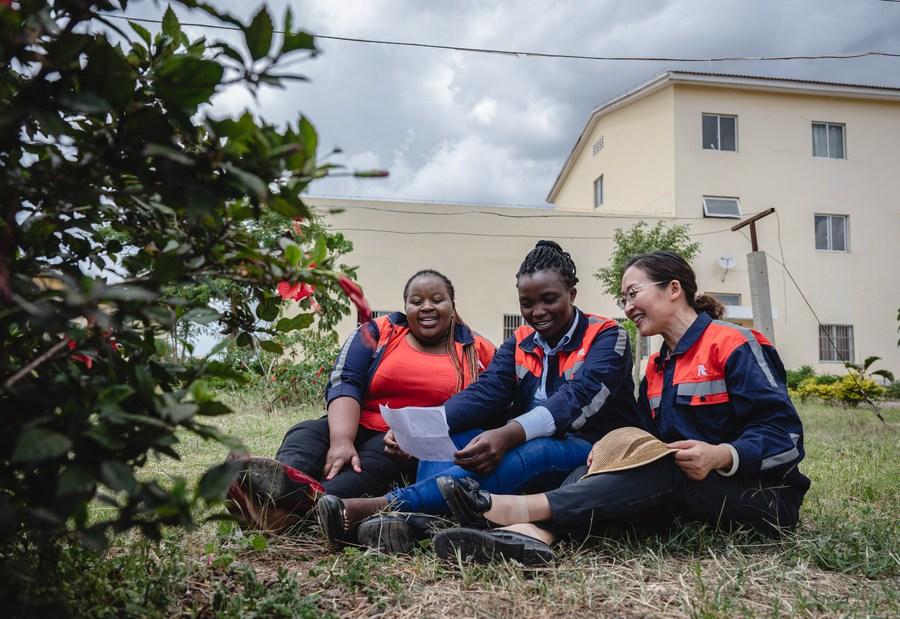
Editor's note: Since its inception in 2013, the Belt and Road Initiative (BRI) has transformed ideas into actions, from a vision into reality, and from a general framework into concrete projects. Evaluating the BRI's accomplishments over the last decade raises questions. How has the BRI advanced policy coordination, infrastructure connectivity, unimpeded trade, financial integration, and closer people-to-people ties? "BRI: A Road for the Common Good" is a five-part series that delves into the BRI's achievements of the past decade. The fifth essay explores people-to-people ties.
By Hannah Ryder
The idea of increasing or improving people-to-people flows and bonds can sound a little clichéd, but it is incredibly important, and to some degree explains the popularity of the Belt and Road Initiative (BRI).
As the white paper "The Belt and Road Initiative: A Key Pillar of the Global Community of Shared Future" puts it, people-to-people ties underpin global cooperation. Whether it is trade or investment, even in this digital age, neither of these can flow steadily without people being involved and interacting.
Yet, such flows have historically never been sufficient globally.
Take Africa as an example. The book Travelling While Black by Nanjala Nyabola, as the title might imply, documents in an incredibly sharp and moving way the experiences that Africans face when traveling or migrating to other countries as well as internally within the continent, and thereby documenting African people-to-people experiences.
From racism when seeking visas, to walls built to keep migrants from all walks of life out, and the boats that migrants often drown in to get to destinations of economic promise, the heartbreaking stories of African attempts at migration out of the continent are well known.
Such barriers also affect business. A Kenyan executive like myself, for instance, if living in Nairobi, will first need to travel to Cameroon to get to Morocco, more than doubling the journey time. In some cases, a visa from France or the UK is even required just to remain in the airport. These kinds of barriers create wholly unnecessary productivity and talent losses, even for the most privileged, and make trade of goods or services, in turn, extremely challenging.
The lack of cross-regional infrastructure on the continent, for instance, is a major reason why intra-continental trade in Africa is so low – under 20 percent – compared to other regions in the world such as Asia at around 60 percent. Moreover, over 61 percent of the traded goods on the African continent are semi- or fully-processed. People-to-people flows within and from Africa are highly constrained.

Chinese instructor Chen Ling (R) teaches her apprentices to sing Chinese songs during a work break in Nairobi, Kenya, May 23, 2023. [Photo/Xinhua]
This is why scaling-up people-to-people flows is crucial. The BRI's role in closing the infrastructural gap, promoting flows of people, and boosting trade connectivity cannot be understated. The need to fill massive infrastructure gaps on the African continent such as new international airports or cross-regional railways and to enhance people-to-people flows is a key reason why the BRI is so popular within African governments.
Among the 53 African countries that have established diplomatic relations with China, 52, plus the African Union Commission, have signed BRI cooperation documents with China. A large number of high-level African officials have taken the initiative to promote people-to-people flows by visiting China in recent years. In all publicly issued joint statements, these leaders have reiterated the importance of the BRI.
And governments have seen shifts in people-to-people flows from this interaction over the past 10 years. For instance, China has become one of the most popular destinations for African students. With improvements to China's visa processes, several students have been choosing to remain to work in Chinese and foreign companies in China. In the other direction, Chinese nationals can now travel to dozens of African countries visa-free. This influx of clientele can create opportunities for growth and jobs in Africa.
So far, cities from 60-plus BRI participating countries – many of them African, have formed more than 1,000 "city pairings" with their Chinese counterparts, helping, for instance, share and build understanding at the municipal level of various management techniques for everything from rapid urbanization to traffic control.
At 10 years old, the BRI has in many ways just started. Many African leaders anticipate more interactions with China and Asia more broadly – to attract even more investors and tourists, for instance, and to ensure more of their young populations are not just literate but also learned and innovative, capable of future leadership in government or business. Participating countries across the globe also need to build the infrastructure so that their people can meet, interact, trade with, and invest in each other.
Admittedly, the BRI cannot do it all, nor should it aspire to. But the world has gaps. People have both physical and perceptual gaps between them that are too large. The time is now to at least attempt to narrow the gaps – and not build new walls. The BRI is one of the key solutions.
The author Hannah Ryder is the CEO of Development Reimagined, an award-winning African-led and African-owned international development consultancy based in Beijing.

 中文
中文



